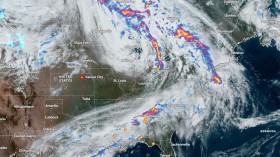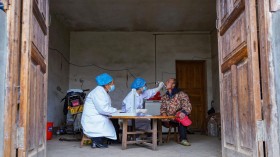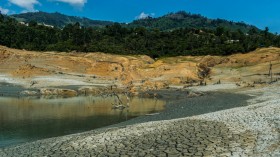Puerto Rico's national animal, the coqui frog, has been affected by climate change in a strange way: by shrinking and developing a shorter, higher pitched frogsong.
Male coqui frogs uses their song to defend territory and attract mates, and biologists believe the frog's call has changed over time as a result of its diminishing body size.
"We think the animal adapted to temperature change by becoming smaller, which we believe causes the differences in their calls," said Sebastiaan Meenderink, a physics researcher at University of California, Los Angeles.
Meenderink and his collaborator Peter Narins, a UCLA professor of integrative biology and physiology and of ecology and evolutionary biology, gathered their data from a 1983 study that examined 170 male coqui frogs (Eleutherodactylus coqui) and a 2006 study that examined 116 males. The frogs in the studies were collected from 28 altitudes across Puerto Rico, ranging from about 30 feet above sea level to more than 1,100 yards above sea level.
The researchers suggest that the shrinking size of the coqui frog will affect its chances of reproductive success substantially.
"If current trends continue unabated, the coqui frog will sound and look quite different before this century is over," Narins said.
The researchers found that frogs sampled at similar altitudes were 10 percent smaller in 2006 than they were in 1983. In that 23-year time span, the temperature increased by 0.5 degrees Fahrenheit, which the researchers say is a significant amount for such a short period of time.
The study is published in the journal Proceedings of the Royal Society B.
© 2024 NatureWorldNews.com All rights reserved. Do not reproduce without permission.





